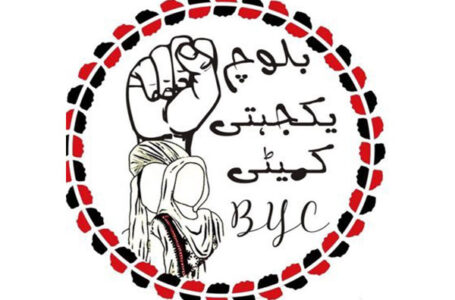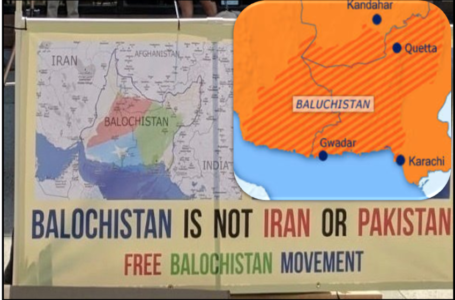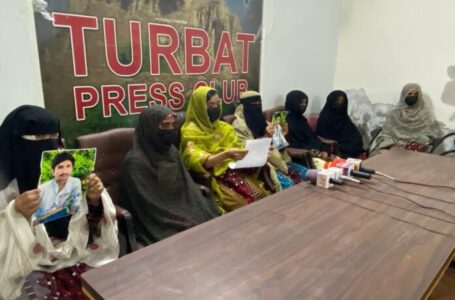Balochistan: Pakistani Forces’ Ration Supply Confiscated in Kulbar
Iranian Military’s Three-Day Assault on Baloch Residents in Bandar Kolahi

DOZZAAP (ZAHEDAN): Last week the Iranian military, alongside local official, IRGC and judicial authorities from Hormozgan province, launched a violent three-day offensive in the town of Bandar Kolahi, beginning May 11, 2024. Officially described as a crackdown on illegal fuel smuggling, the assault left dozens of Baloch citizens injured, arrested, and displaced. The offensive was marked by home invasions, property destruction, widespread looting, and physical abuse particularly targeting women and children.
On Sunday, May 11, hundreds of military personnel and special forces, equipped with heavy machinery, stormed Bandar Kolahi, a coastal town in district Minab. The offensive was ordered by Qasem Rezaei, Chief Commander of the Iranian Police, and Ali Akbar Javidan, Police Commander of Hormozgan. Authorities claimed the assault’s purpose was to dismantle local fuel smuggling networks.
However, eyewitnesses and residents suggest the military’s true objective was far broader, targeting civilian homes and private property. One anonymous source recounted that “military forces broke into homes, ransacked closets, and stole gold and jewellery from citizens.” The destruction didn’t end there; “they even destroyed parked cars using guns and batons,” the source added. Homes were not spared, with reports claiming that military forces even entered bedrooms and personal areas, violating residents’ privacy.
The Iranian military crackdown led to at least 36 injuries, many of whom were minors. Victims were either shot with pellet guns or subjected to physical beatings. However, local families have refrained from naming the injured, fearing retribution and the creation of false charges against them.
In addition to the injuries, dozens of residents were arrested, including children, and transferred to undisclosed locations. Accounts indicate that many detainees were severely beaten before their arrest. “We were forced into silence because of the fear of further punishment,” said one resident, “But we are helpless. The authorities are coming after us with force.”
The raid’s violence wasn’t limited to men. Women and children were also targeted during the invasion. As they protested the violation of their homes, military forces surrounded and beat women in the streets, forcibly removing their headscarves.
In a separate incident, Iranian forces disrupted a religious service at the Mohammad Rasulullah Mosque, a Sunni mosque in the town. Military forces broke into the mosque on May 11, seized control of the loudspeakers, and broadcast a Shia prayer. The Imam of the mosque, who objected to this action, was subjected to violence and abuse.
This latest assault on Bandar Kolahi is not an isolated event. Iranian authorities have repeatedly targeted the town with military raids, including in April 2023, July 2022, and April 2021. These operations are part of an ongoing campaign to forcefully displace Baloch residents in the region, an area of strategic geopolitical importance.
Despite these repeated incursions, residents have continuously resisted relocation, prompting the Iranian state to intensify its military pressure. Local reports suggest that the state intends to further escalate its efforts to displace the Baloch population, potentially constructing new military bases in the coastal areas of Makran, including Bandar Kolahi and Bandar Kargan.
Demographic Engineering and Land Confiscation
The Baloch Activists Campaign has warned of the Iranian government’s ongoing efforts to alter the demographic composition of the region. According to Qasem Rezaei, the police chief of the Islamic Republic, the displacement of local Baloch populations is part of a larger strategy to establish military installations along the Makran coast. The goal is to consolidate control over the region, historically inhabited by the Baloch people.
As of now, the exact financial damage caused to residents is still unclear. Internet disruptions during the operation have made it difficult to assess the full extent of the destruction and communicate with those affected.
The Baloch population under Iran’s occupation has long faced systemic neglect and discrimination. The lack of infrastructure and economic opportunity has forced many to resort to illegal activities, such as fuel smuggling, to survive.
“The government has done nothing to provide basic services to the Baloch people,” said one local activist. “Now they punish us for surviving.” The community’s ongoing struggles highlight the deep-seated inequality and exclusion faced by the Baloch people under Iranian rule.
The recent military crackdown in Bandar Kolahi has drawn widespread condemnation from human rights organisations and activists. The Baloch people’s resistance to forced displacement and repression remains steadfast, even as they face increasing violence and persecution at the hands of Iranian authorities. With each new raid, the government’s efforts to erase Baloch identity and control the region become more apparent.










